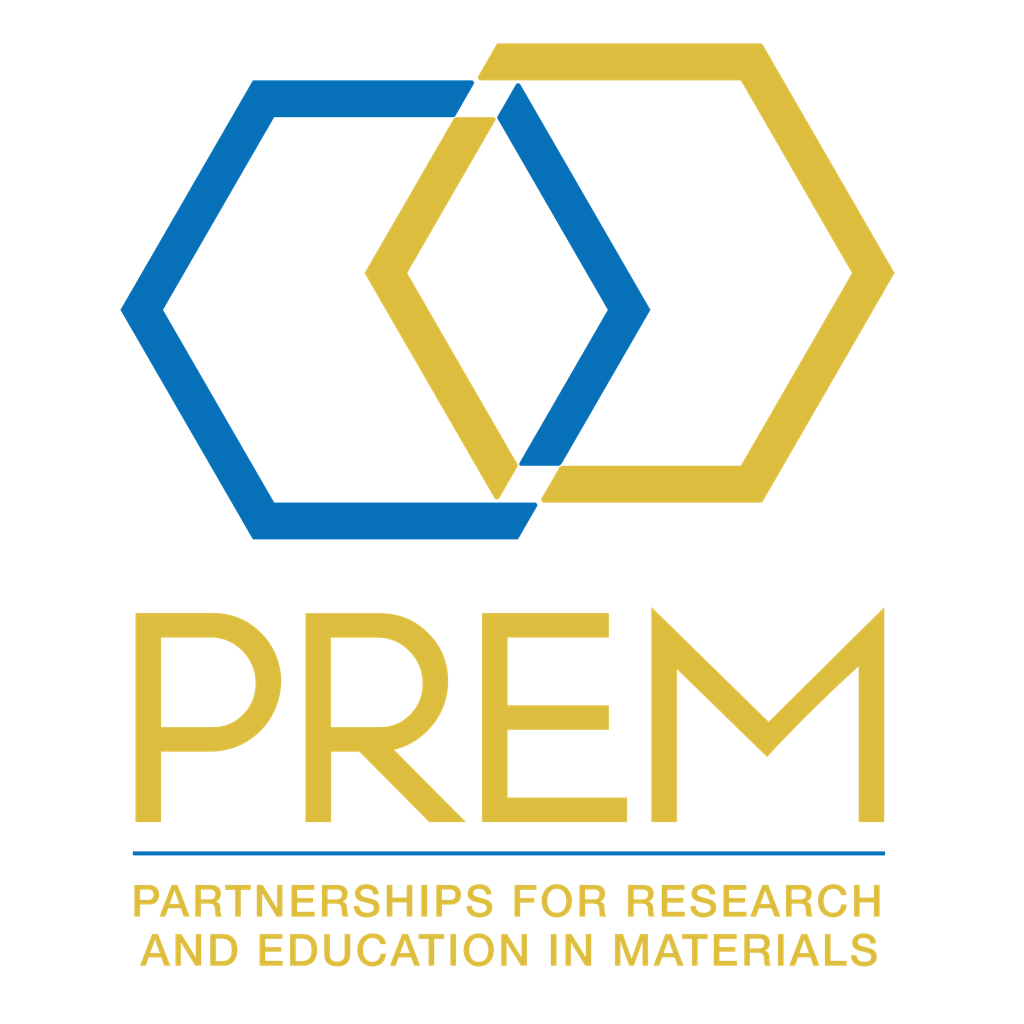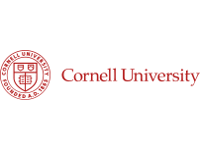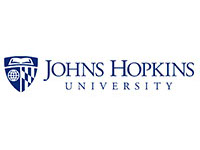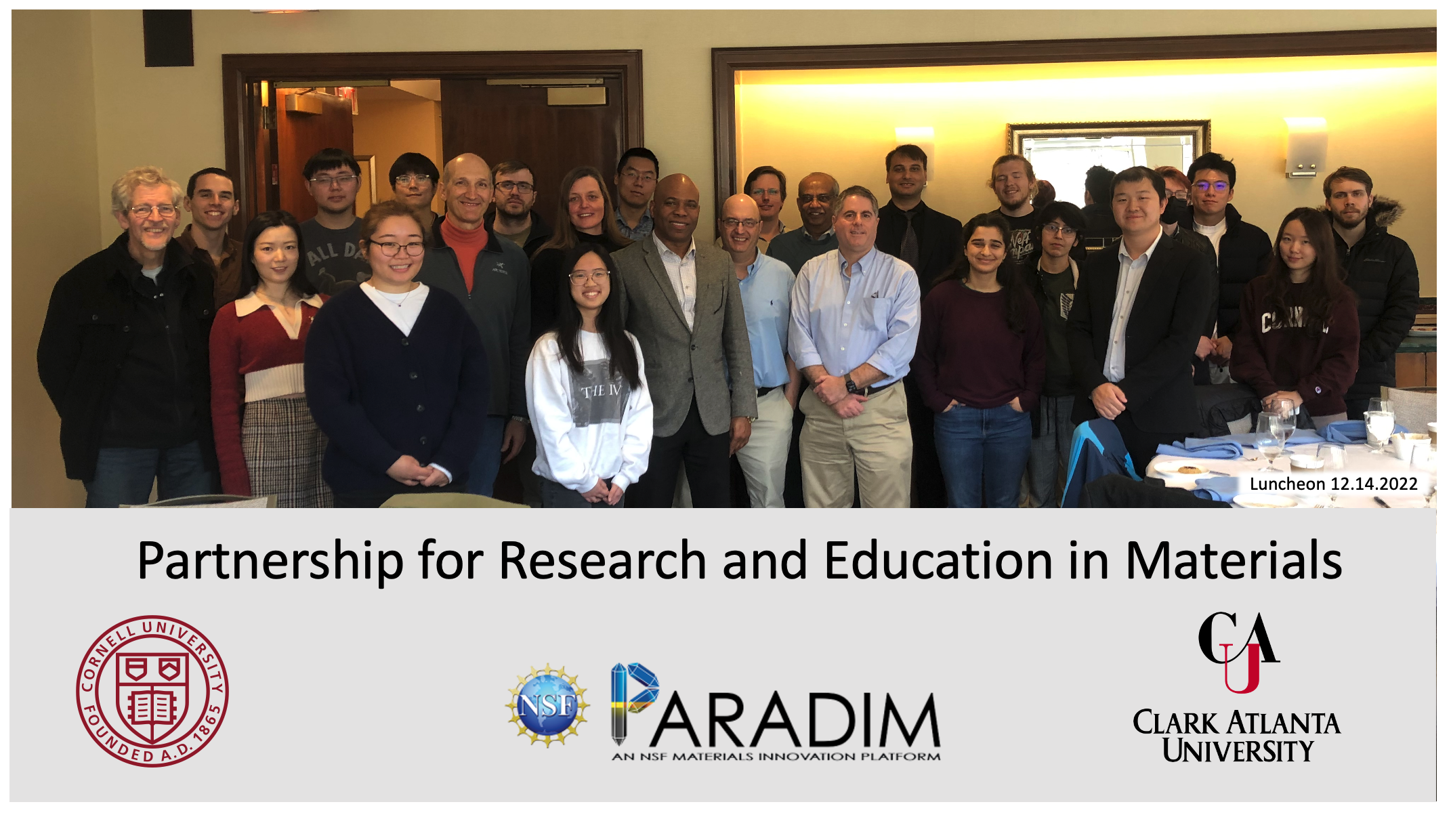
The Partnerships for Research and Education in Materials or PREM is a National Science Foundation program designed to enhance diversity in materials research and education. PREM achieves this goal by stimulating the development of formal, long-term, collaborative research and education partnerships between minority-serving colleges and universities and the NSF Division of Materials Research (DMR)-supported centers and facilities.
The PARADIM PREM is a vibrant and effective partnership between two Atlanta University Center (AUC) Schools—Clark Atlanta University and Spelman College—and the Platform for the Accelerated Realization, Analysis, and Discovery of Interface Materials (PARADIM), an NSF-DMR-funded Materials Innovation Platform (MIP). The partnership involves underrepresented minority students in cutting-edge research and education experiences through joint research projects, Research Experiences for Undergraduates (REUs), workshops, seminars, guided inquiry laboratory activities, and other proven best practices in science education. Through this partnership, the materials science community's diversity is enhanced by populating pathways to successful membership in this community with underrepresented minority participants well prepared to assume leadership roles. As a vehicle for this preparation, the participants participate in cutting-edge research and educational activities in three types of emergent interface materials: (1) oxide-oxide interfaces, (2) interfaces between oxides and covalent organic frameworks, and (3) interfaces between oxides and polymers.
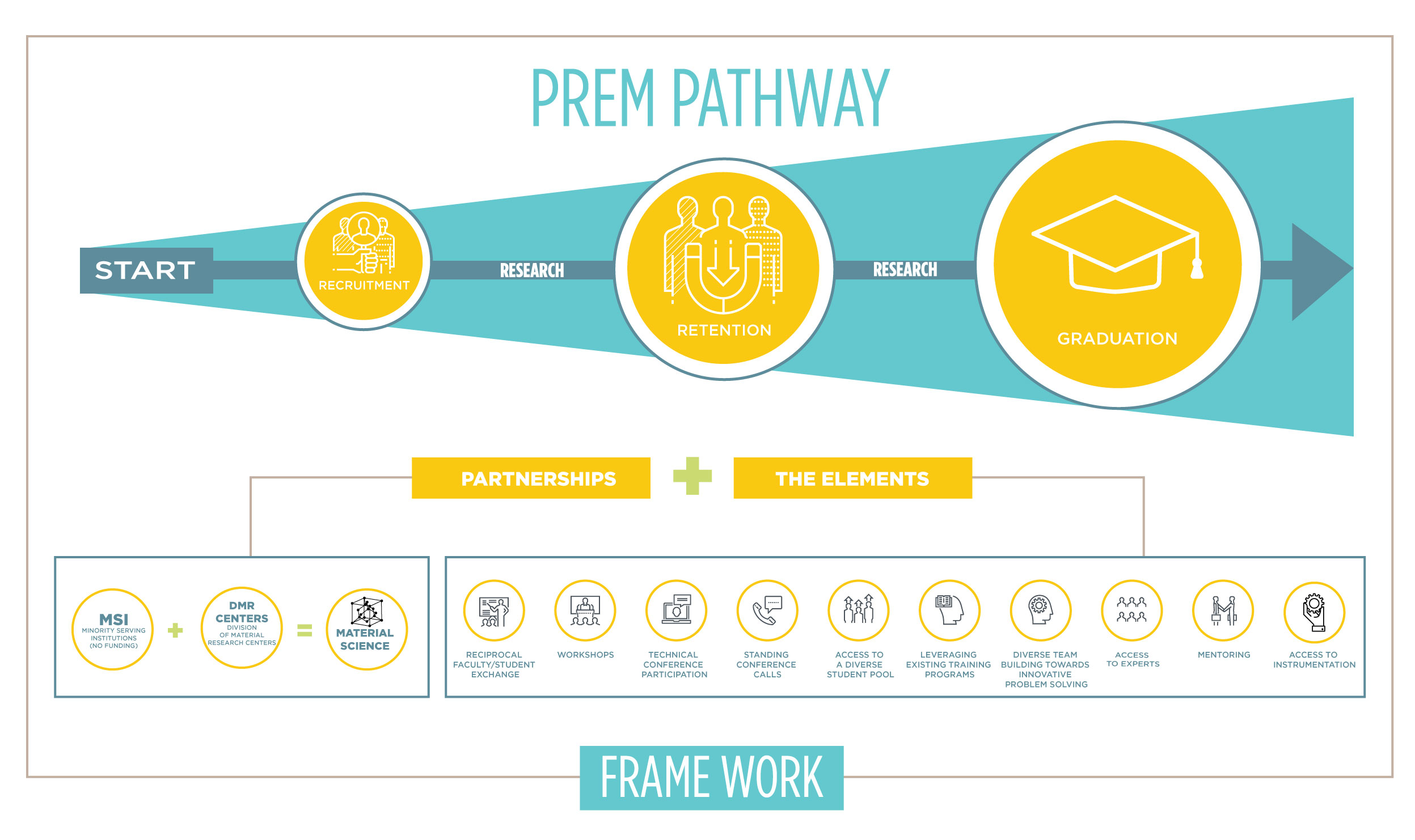
Participating members:
Conrad Ingram (Department Chair and Professor of Chemistry, CAU-Director of PREM): His research is focused on the design and synthesis of inorganic and organic-inorganic hybrid crystalline nanoparticles and nano-porous materials.
Ishrat Khan (Professor of Chemistry, CAU): His research efforts focus on developing functional macromolecules, biosensors and self-assembly, nano-composites, and studying polymer-nanoparticles interactions.
Xinle Li (Assistant Professor of Chemistry, CAU): His research focuses on synthesizing crystalline porous materials and derived composites for energy and environmental applications such as heterogeneous catalysis and water remediation.
David A. Muller (Samuel B. Eckert Professor of Engineering in the School of Applied and Engineering Physics, Cornell University, PARADIM Director of Electron Microscopy Facility and Member of In-House Research Program in the area of novel instrumentation for characterization): His research focuses on developing scanning transmission electron microscopy (STEM) and spectroscopy as quantitative tools for the atomic-scale characterization of materials. His work on new detector technologies has led to the highest resolution image by any technique to date.
Natarajan Ravi (Professor of Physics, Spelman College): He studies solid-state and biological materials and is a Mössbauer spectroscopist.
Seyhan Salman (Assistant Professor of Chemistry, CAU): Her research focuses on quantum-mechanical investigations of organic electronic materials.
Darrell G. Schlom (Herbert Fisk Johnson Professor of Industrial Chemistry in Department of Materials Science and Engineering, Cornell University, PARADIM Co-Director and Member of In-House Research Program on thin-film synthesis): He has pioneered the growth of oxides by molecular-beam epitaxy (MBE), including their structural customization at the atomic layer level. Using strain engineering, he and his collaborators have accessed hidden ground states of oxides to create materials with unparalleled properties.
Dinadayalane Tandabany (Associate Professor of Chemistry, CAU): His research focuses on the applications of quantum chemical and molecular dynamics simulations of designing of hybrid materials.
Xiao-Qian (Larry) Wang (Professor of Physics, CAU, and Co-Director of PREM): His research includes simulation and modeling, ranging from classical molecular dynamics to first-principles approaches and many-body perturbation theories.
Michael D. Williams (Department Chair and Professor of Physics, CAU). His research interests focus on achieving a fundamental understanding of the physical processes, growth morphology, interfacial strain, and electronic structure modifications at the surfaces and interfaces of epitaxial films and semiconductors.

